Starting School Before Age 2 Helps Children Avoid Achievement Gaps, Study Finds
Researchers focused on a program called Educare, which experts say could serve as a model for the future of Head Start.
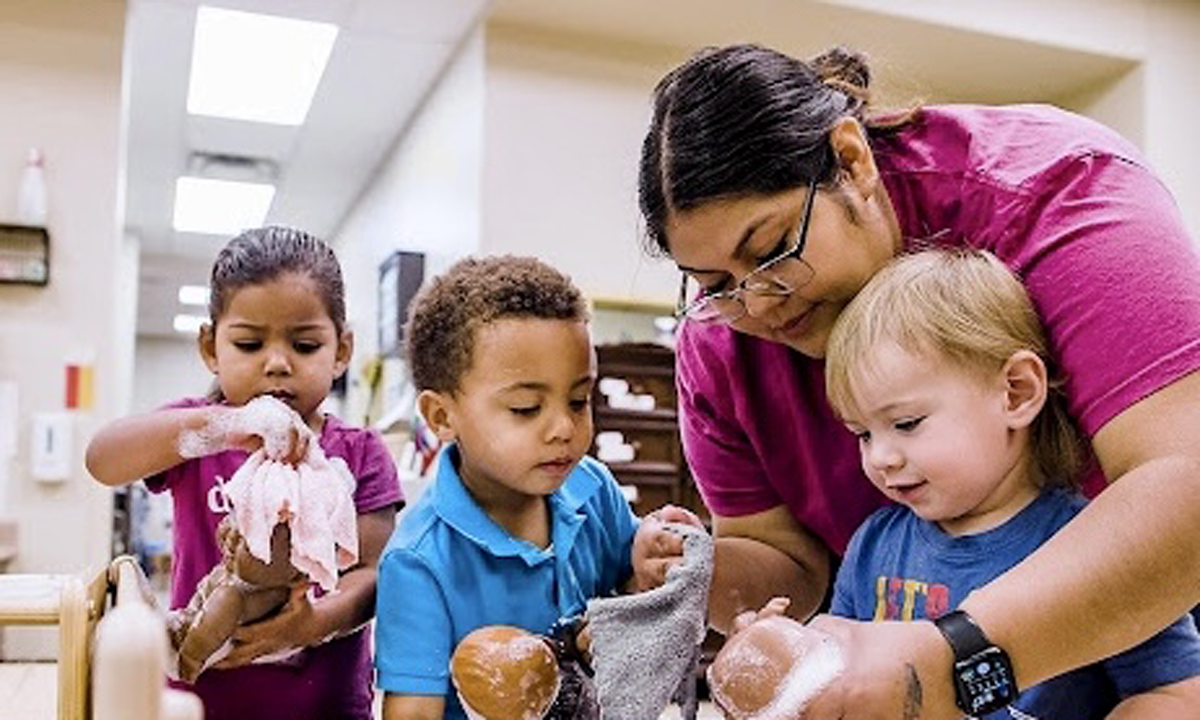
Get stories like this delivered straight to your inbox. Sign up for The 74 Newsletter
Preschool teacher Cathy Barraza stood in the center of a large playground as she watched a group of toddlers scoot down the slide and dart across the soft artificial grass. Other 2-year-olds rode tricycles around a track while some clung to their teachers.
“I had them when they were infants,” said Barraza, who has worked for the Long Beach-based Educare since 2017. Compared to the other state-funded program she used to work for, Educare fosters more trusting relationships with parents. “They become like a family.”
A modern facility tucked into a residential neighborhood, the program is part of a network of 25 Educare centers nationwide. In a field with high turnover, Educare is known for keeping children with the same teacher until age 3. Other features — small class sizes, a full-day schedule and strong family support — further set the model apart from most early-childhood centers serving young children from poor families.
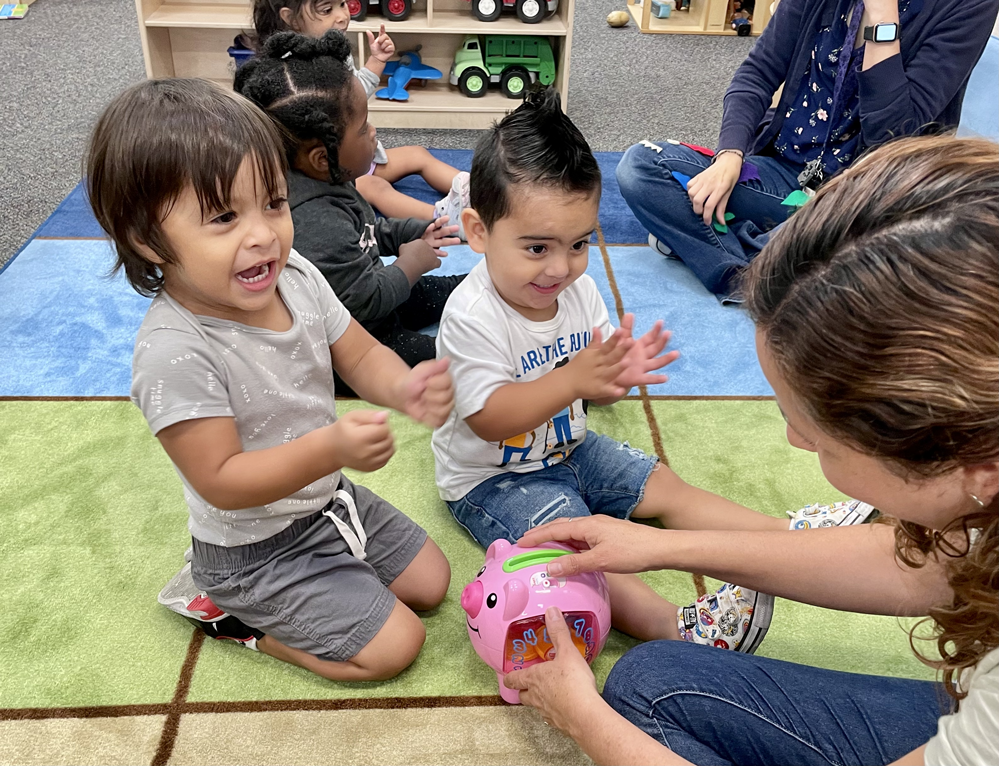
Those elements pay off once children enter school, according to a recent study focusing on an Educare site in Tulsa, Oklahoma, which follows the same model as the Long Beach center. Those who spent their early years in the program entered kindergarten on pace academically with students from more affluent families, the study found. And even through third grade, they had stronger language and math skills than peers without the same early experiences.
“It wasn’t their elementary school experience that was different; their early-childhood experience was different,” said Diane Horm, director of the Early Childhood Education Institute at the University of Oklahoma-Tulsa and part of a nationwide network of researchers evaluating Educare. “There was no evidence of fade out and no evidence of catch up.”
‘A strong model’
Even the best preschool programs have faced a common criticism: Gains made by participants frequently disappear during the early grades. Republicans in Congress have repeatedly used such results to argue for budget cuts to Head Start, the federally funded preschool program for 3- and 4-year olds.
The Educare results, Horm said, suggest that the achievement gap can be avoided if children start preschool before age 2.
The size of the Tulsa study sample wasn’t large — just 75 children — but other researchers say it’s an important contribution to the early education field.
“You have a strong model [over] multiple years and strong persistent outcomes,” Steve Barnett, senior co-director of the National Institute for Early Education Research, said about the Tulsa study.
A previous long-running research effort, focused on the first Educare center in Chicago, showed that former students continued to perform well in elementary school and that parents stayed engaged in their children’s education. But the Tulsa study is considered more rigorous because Horm compared the students’ achievement to those who didn’t attend Educare.
The study’s results, experts say, support the argument for more federal spending on high-quality programs for infants and toddlers, especially since 45 states now provide some funding for pre-K.
“If the states are going to put money into pre-K, maybe a better use of federal resources is for birth to 3,” said Linda Smith, director of the Early Childhood Development Initiative at the Bipartisan Policy Center, a think tank.
Educare, which Horm called an “enhanced” version of Head Start and Early Head Start, could even serve as a blueprint for the future of those programs, which are long overdue for reauthorization in Congress, Smith said.
Head Start began in the 1960s’ as part of the War on Poverty. Early Head Start followed in 1995 to serve infants and toddlers. Housed within the U.S. Department of Health and Human Services, they are two separate programs, but Smith would like to see that change.
“It’s time to make this a birth-to-school-entry program and let communities determine their needs,” she said.
‘The kids are ready’
Educare prefers to locate its centers as close to an elementary school as possible to help ease the transition into state-funded pre-K or kindergarten. The Long Beach center even shares its property with an elementary school.
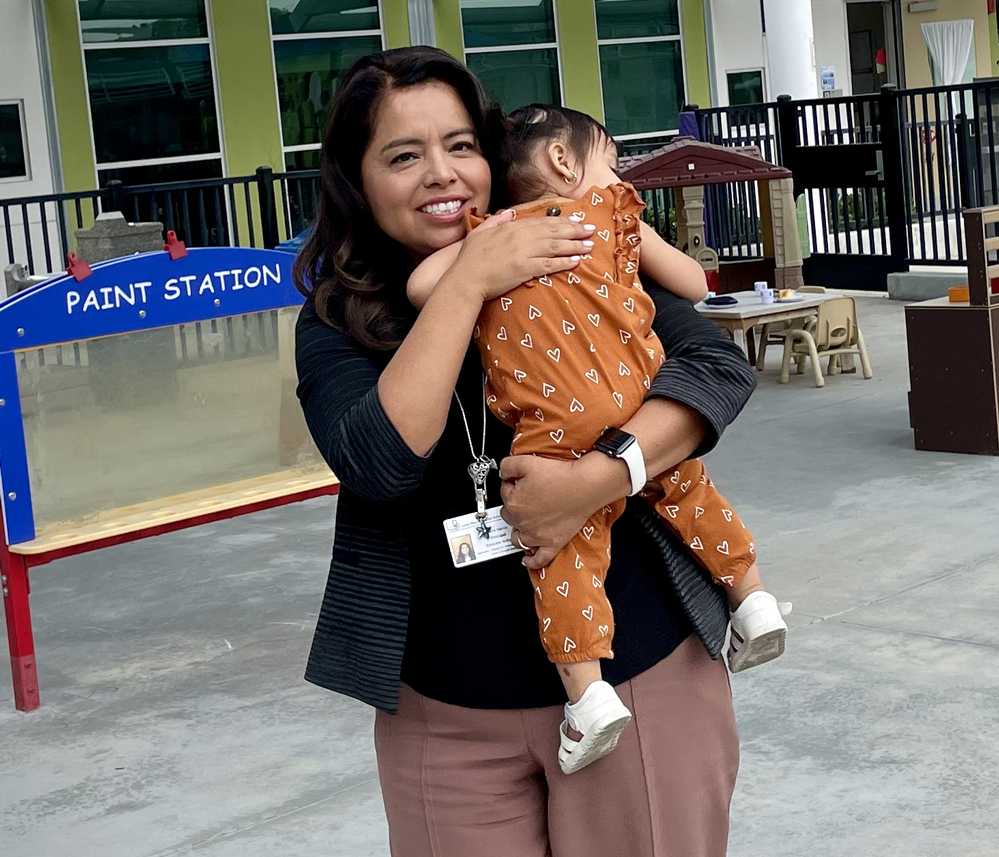
“The Tulsa results confirmed the work that we do,” said Maria Harris, who served as an Educare principal until becoming Head Start director for the Long Beach Unified School District. “What we’re hearing from our receiving elementaries is, ‘The kids are ready.’ ”
Most Educare classes have three teachers — a lead with a bachelor’s degree and two assistants — providing children more individual attention and opportunities to talk about their routines throughout the day.
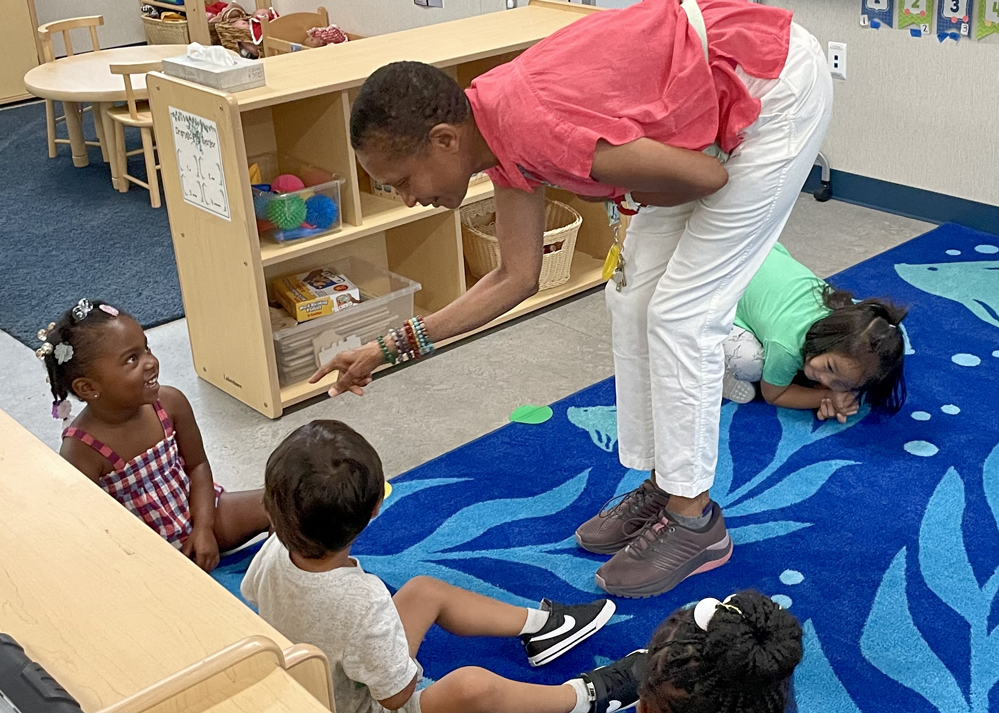
Janet Rosales, whose 10-year-old son attended Educare in Tulsa, thinks the consistent structure he experienced during his earliest years is why he’s doing well in school now. He’s in the gifted program at Eliot Elementary, is quick and accurate with math problems and loves to draw.
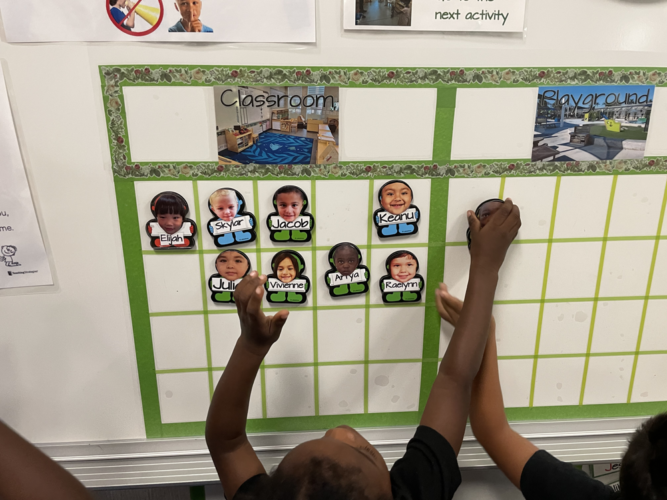
When her youngest, now 10 months, got a slot at the same center, with the same teacher who taught her son, Rosales said she “cried with happiness.”
“It’s just hard to find a place that is so engaging with your children,” Rosales said.
Get stories like these delivered straight to your inbox. Sign up for The 74 Newsletter

;)
